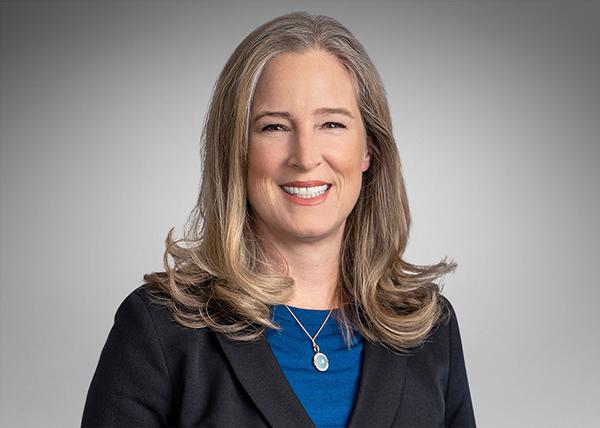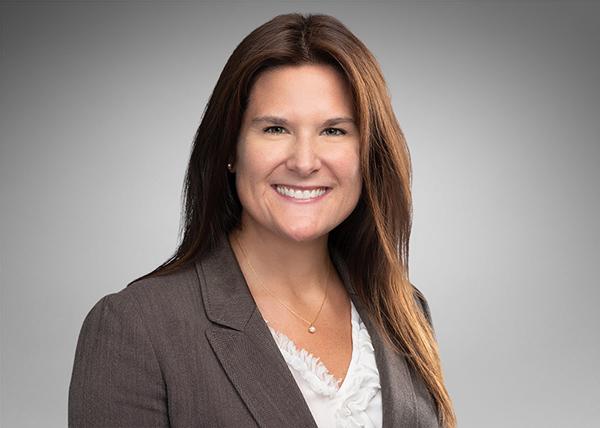There were several notable developments in the first quarter of 2020 affecting class actions. Courts issued important decisions addressing whether defendants could raise Article III standing or personal jurisdiction defenses to defeat the claims of putative class members. A federal court in California called one company’s efforts to avoid its arbitration agreement in favor of a class action hypocritical. The U.S. Supreme Court has been asked to review decisions that make it more difficult for companies to enforce their arbitration agreements to defeat class action lawsuits in California. Finally, plaintiffs began filing class action lawsuits related to COVID-19, and many more are expected.
1. Absent Class Members Must Possess Article III Standing to Recover Damages
Defendants have often attempted to defeat class certification by arguing that no class may be certified if it contains members that lack Article III standing. The Ninth Circuit became the latest court to weigh in on this dispute, holding in Ramirez v. TransUnion LLC, 951 F.3d 1008 (9th Cir. 2020), that each member of a damages class must satisfy the standing requirement of Article III at final judgment to recover monetary damages.
After a jury directed a defendant to pay a certified class nearly $60 million in statutory and punitive damages, the defendant argued on appeal that all members of a damages class must demonstrate standing under Article III. The Ninth Circuit agreed, holding that a contrary result would violate the Rules Enabling Act by transforming class actions into “a vehicle for individuals to obtain money judgments in federal court even though they could not show sufficient injury to recover those judgments individually.” But this holding did not help the defendant in Ramirez, because the Ninth Circuit found that the absent class members in that case did possess Article III standing and so affirmed the judgment.
The Ninth Circuit limited the reach of its decision by making clear that it was “not alter[ing] the showing required at the class certification stage or other early stages of a case” and that its holding did “not apply to cases involving only injunctive relief.” However, Ramirez leaves the door open for defendants to argue that a damages class cannot be certified if plaintiffs lack a common means of proving that absent class members all have Article III standing.
2. Seventh and D.C. Circuits Confront the Impact of Bristol-Myers Squibb on Nationwide Class Actions
The Supreme Court’s 2017 Bristol-Myers Squibb decision on personal jurisdiction in the mass-tort context left unanswered whether a defendant could be forced to defend itself in a nationwide class action if it was sued in a state where it was not subject to general jurisdiction. The Seventh and D.C. Circuits became the first federal appellate courts to confront this issue, but their opinions showed this issue is not yet settled.
The Seventh Circuit held in Mussat v. IQVIA, 953 F.3d 441 (7th Cir. 2020), that proof is not required that absent class members individually could have sued a defendant in a forum state. Rather, for personal jurisdiction purposes, the named plaintiffs in a class action need only demonstrate that the forum had personal jurisdiction over their claims.
By contrast, a divided panel in the D.C. Circuit punted this question in Molock v. Whole Foods Mkt. Grp., Inc., 952 F.3d 293 (D.C. Cir. 2020). Because putative class members are treated as non-parties until a class is certified, the majority held that courts should not consider whether a court can exercise personal jurisdiction over absent class members claims until the class certification stage, and the case had reached the D.C. Circuit at the pleading stage. But the dissenting judge not only concluded that courts could address this issue at the pleading stage, but also believed that “logic dictate[d]” that Bristol-Myers Squibb should extend to class actions.
3. Federal Court Orders Food Delivery Service to Arbitrate Over 5,000 Individual Labor Disputes
In a decision that garnered widespread attention as a potential cautionary tale for companies that make use of arbitration agreements, a food delivery service lost a bid to escape its arbitration agreement. See Abernathy v. DoorDash, 2020 WL 619785 (N.D. Cal. Feb. 10, 2020). Facing a coordinated campaign of individual arbitration demands by over 5,000 claimants, which would have required the company to pay almost $12 million in arbitration fees just to commence the arbitrations, the company sought to stay arbitration until after a state-court class action settlement was finalized. The classwide settlement would have released the claims of certain arbitration claimants if they remained in the class. In a biting order, the court referred to the company’s arguments as “hypocri[tical]” and pointed to what it saw as “irony upon irony” in the company’s efforts to “avoid its duty to arbitrate” and “resort to a class-wide lawsuit, the very device it denied to the workers.”
4. Violations of Privacy Laws Continue to Satisfy Article III’s Standing Requirements
In affirming approval of a class action settlement, the Ninth Circuit in Campbell v. Facebook, Inc., 951 F.3d 1106 (9th Cir. 2020), again confirmed that plaintiffs alleging bare violations of statutorily created privacy rights have suffered the particularized harm required by Article III standing jurisprudence.
Campbell concerned alleged violations of both the federal Electronic Communications Privacy Act and the California Invasion of Privacy Act. The court noted that, in determining whether an “intangible harm” such as the violation of a statutorily created privacy right is concrete enough to find standing, courts should be guided by both the “history” of the harm at issue and the “judgment” of the legislative body that enacted the statute. Finding that both Congress and the California Legislature passed the respective acts at issue to confer “substantive” privacy rights rather than “bare procedural” protections and that the statutes protected against harms that bore a “close relationship to ones that have traditionally been regarded as providing a basis for a lawsuit,” the court went on to hold that both named plaintiffs had suffered a concrete harm that satisfied Article III requirements.
5. Defendants Continue to Face Roadblocks Removing State Attorney General Lawsuits to Federal Court
Defendants have long struggled to successfully remove lawsuits filed by state attorneys general to federal court, and a recent Sixth Circuit decision confirms that defendants will continue to encounter difficulties in doing so. In Nessel v. Amerigas Partners, L.P., 954 F.3d 831 (6th Cir. 2020), the defendant argued that a lawsuit filed by Michigan’s state attorney general qualified as a “class action” removable to federal court under the Class Action Fairness Act. The Sixth Circuit rejected this attempt, finding that even though the attorney general sought to recover damages for Michigan consumers, the state law under which the attorney general had filed suit was not sufficiently “similar” to Rule 23. In the process, the Sixth Circuit joined four other federal appellate courts that had rejected similar attempts to remove state attorney general lawsuits to federal court.
6. U.S. Supreme Court Asked to Review California’s McGill Rule
The U.S. Supreme Court has been asked to address the enforceability of arbitration agreements yet again, this time in the context of whether California’s so-called McGill rule is preempted by the Federal Arbitration Act. Since the California Supreme Court’s 2017 ruling in McGill v. Citibank, N.A., 393 P.3d 85 (Cal. 2017), which held that arbitration agreement clauses in which parties waived their rights to seek “public injunctive relief” were unenforceable, plaintiffs in federal court in California have sought to evade arbitration agreements by adding claims for public injunctive relief to their complaints.
The Ninth Circuit sanctioned this tactic in Blair v. Rent-A-Ctr., Inc. when it found that the FAA did not preempt the McGill rule because the rule was a “generally applicable contract defense” falling within the FAA’s savings clause and did not otherwise “stand as an obstacle to the accomplishment of the FAA’s objectives.” 928 F.3d 819, 831 (9th Cir. 2019). A pair of related decisions held that, depending on how an arbitration agreement is drafted, defendants might not be able to compel arbitration of any claims, including putative class-action claims. See McArdle v. AT&T Mobility LLC, 772 F. App’x 575 (9th Cir. 2019); Tillage v. Comcast Corp., 772 F. App’x 569 (9th Cir. 2019).
The Ninth Circuit’s decision may not be the last word. Both Comcast and AT&T filed petitions for writs of certiorari in February 2020, giving the Supreme Court an opportunity to address the McGill rule. In the past decade, the Supreme Court has generally upheld defendants’ efforts to use an arbitration agreement to defeat a class action; the only case where it refused to do so involved the transportation context.
7. COVID-19 Class Actions Emerge
Class action litigation arising out of the global pandemic caused by COVID-19 has already begun. Lawsuits have been filed against ticket sellers and event promoters, gyms and fitness centers, tour and cruise companies, hand sanitizer manufacturers, and universities that moved classes online. The suits assert a variety of legal theories, ranging from deceptive practices claims to employment-related lawsuits to violations of privacy, securities, and price-gouging laws. Plaintiffs’ lawyers predicted many more suits as the disruptions caused by the pandemic continue. Companies should carefully monitor these suits as they are filed, as plaintiffs continue to advance novel theories.
If you have any questions concerning the material discussed in this update, please contact the members of our Class Actions Litigation practice below.
0
Back
Back













